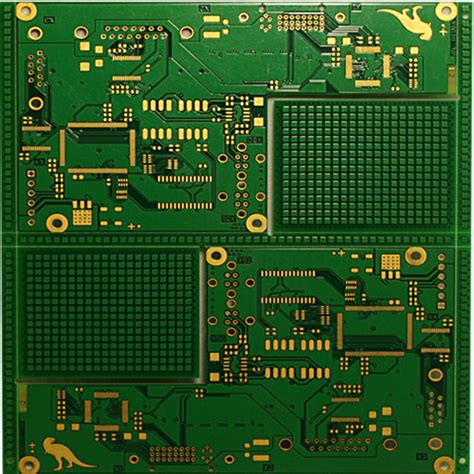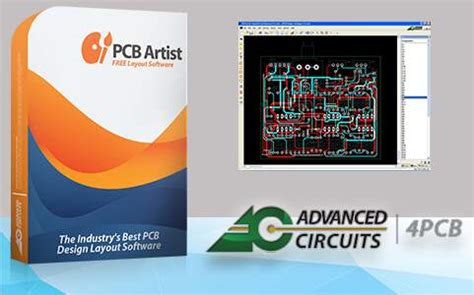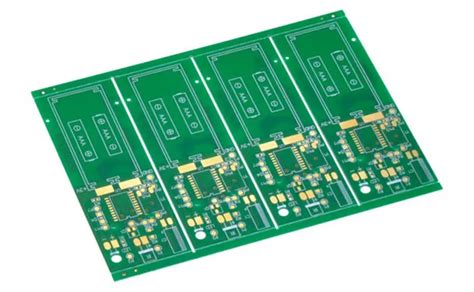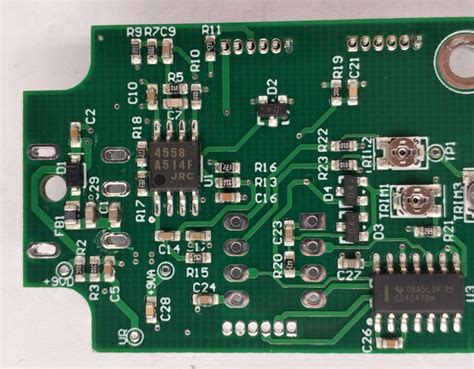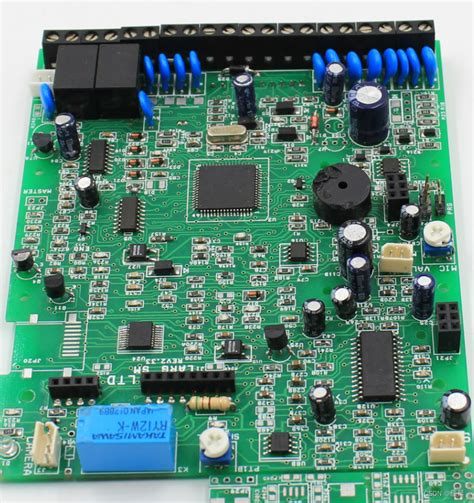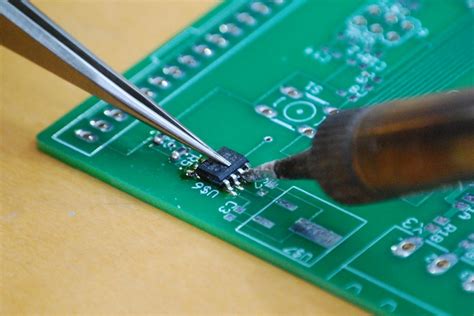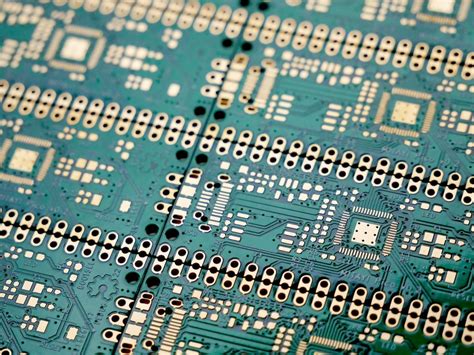LeadingHeavyCopperPCBManufacturersforSuperiorPerformance

Key Takeaways
When considering heavy copper PCBs for your projects, it’s crucial to evaluate the capabilities of various pcb manufacturing companies. These companies often specialize in techniques that enhance the capacity and reliability of pcbs, particularly in power electronics. Heavy copper designs are not merely an option; they are a necessity for applications requiring a higher current. By choosing the right heavy copper pcb manufacturing service, you not only ensure superior performance but also optimize your overall pcb manufacturing cost.
In the context of your business, understanding the different strengths of pcb manufacturing companies is vital. Each manufacturer may present unique innovations and methodologies that could align with your specific requirements. It’s beneficial to ask pertinent questions such as: What is their approach toward quality control? What kind of customization options are available? This kind of inquiry can guide you to a partner that complements your organizational needs.
Moreover, consider looking into case studies or testimonials from previous clients as they can provide insights into how these manufacturers perform under pressure and meet demanding specifications. As you explore manufacturers, remember that the pcb manufacturing business hinges on their ability to deliver timely and efficient solutions tailored to your technical demands.
"The right heavy copper PCB manufacturer can be a game-changer for achieving optimal performance in technology-focused industries."
By keeping these key takeaways in mind, you’ll have a clearer perspective on how to proceed with selecting a suitable partner for your heavy copper PCB needs.

Introduction to Heavy Copper PCBs: Advantages and Applications
Heavy copper PCBs are pivotal in modern electronics, especially where high current and power handling are essential. These PCBs are designed to use copper foil thickness greater than 3 oz/ft², providing enhanced current capacity and thermal management, which makes them ideal for applications in power supplies, electric vehicles, and industrial machinery. One of the primary advantages of heavy copper PCBs is their ability to dissipate heat more effectively than standard boards. This characteristic is crucial in preventing overheating and ensuring the reliability of your electronic components over time.
When you consider pcb manufacturing, selecting a manufacturer that specializes in heavy copper technology can significantly benefit your projects. These specialized pcb manufacturing companies often employ advanced techniques that not only optimize the performance of heavy copper PCBs, but also help manage costs effectively, making them a viable choice for various applications despite potentially higher pcb manufacturing costs associated with this complexity.
| Feature | Heavy Copper PCBs | Standard PCBs |
|---|---|---|
| Copper Thickness | > 3 oz/ft² | < 3 oz/ft² |
| Thermal Conductivity | Excellent | Good |
| Current Capacity | High | Moderate |
| Typical Applications | Power electronics, automotive | General electronics |
Investing in heavy copper PCB manufacturing business not only enhances the performance of your products but also offers a competitive advantage in sectors where durability and efficiency are paramount. Engaging with leading manufacturers ensures you access innovative techniques tailored to meet the demands of contemporary applications, driving reliability and longevity in your devices. Thus, understanding the advantages and applications of heavy copper PCBs can transform how you approach your next electronic project or product development cycle.
Key Characteristics of Heavy Copper PCB Technology
Heavy copper PCBs are distinguished by their thicker copper layers, which significantly enhance their ability to conduct electricity in demanding applications. Unlike standard PCBs, these boards boast increased current capacity, making them ideal for power electronics where reliability and performance are critical. The heavy copper used in these designs typically ranges from 3 oz to 20 oz of copper thickness, allowing for the management of higher power levels and minimizing issues such as overheating and signal integrity loss. When considering your options with respect to pcb manufacturing, it’s essential to understand that the production process for heavy copper boards is more complex than traditional methods. This complexity can potentially influence the pcb manufacturing cost as manufacturers employ advanced technologies to ensure precision and durability. Many pcb manufacturing companies implement unique techniques tailored specifically for heavy copper applications, ensuring that products meet rigorous industry standards while delivering optimal performance. By selecting the right partner in your pcb manufacturing business, you’re ensuring that your heavy copper PCBs not only meet your specific requirements but also provide a reliable foundation for high-performance electronics.

Top Heavy Copper PCB Manufacturers in the Industry
When you explore the realm of heavy copper PCB manufacturers, it’s essential to understand the unique advantages they bring to the PCB manufacturing landscape. These manufacturers specialize in producing boards that accommodate high current flow, making them ideal for power electronics applications. You’ll find that the enhanced current capacity of heavy copper PCBs results from advanced techniques like electroplating, which ensures uniform copper distribution and reduces the associated PCB manufacturing cost. Additionally, leading PCB manufacturing companies focus on incorporating innovative designs and materials, ensuring reliability and durability under stress. Choosing a manufacturer who has demonstrated expertise in this niche area is crucial for your project’s success, especially when considering the future demands of your PCB manufacturing business. By selecting from these top-tier manufacturers, you not only enhance your product’s performance but also contribute to the overall efficacy of PCB manufacturing technologies in various industries.

Innovative Techniques Used by Leading Heavy Copper PCB Manufacturers
In the ever-evolving world of heavy copper PCB technology, leading PCB manufacturing companies are harnessing innovative techniques to enhance performance and expand applications in power electronics. One notable advancement involves the implementation of lamination processes that allow for better thermal management and improved current handling capabilities. These processes facilitate the production of heavy copper PCBs with increased thicknesses, ensuring higher reliability in demanding environments. Additionally, the adoption of advanced laser cutting and drilling techniques contributes to precise geometries that meet the complex layout requirements typically associated with high-current applications. The integration of automated inspection systems further ensures quality control throughout the PCB manufacturing business, significantly reducing defects and enhancing overall performance. When considering PCB manufacturing costs, these innovative methods may initially seem high, but they ultimately deliver a superior product that can withstand higher power loads with optimal efficiency. As a result, you not only benefit from enhanced durability but also increased overall satisfaction with your heavy copper PCB solutions. By choosing manufacturers who focus on these cutting-edge methods, you position yourself to leverage state-of-the-art technology in your electronic applications.
Enhancing Current Capacity: The Role of Heavy Copper in Power Electronics
When you’re involved in the pcb manufacturing landscape, understanding the significance of heavy copper PCBs becomes crucial, especially in applications that demand increased current capacity. These specialized PCBs utilize thicker copper layers to facilitate better heat dissipation and support higher currents, making them essential in power electronics such as power supplies, motor drives, and high-power amplifiers. As you explore various pcb manufacturing companies, you’ll find that incorporating heavy copper technology can effectively meet the challenges posed by high-performance requirements. The pcb manufacturing cost may be higher due to additional materials and processing techniques, but the benefits far outweigh these costs when you consider reliability and performance enhancements. This increased capacity not only enables robust system designs but also extends product lifetimes and reduces failure rates—critical factors in competitive markets. If you’re looking to enhance your product offerings or improve design efficiency, understanding heavy copper technology will inform your decisions when selecting a pcb manufacturing business that aligns with your goals. It’s not just about meeting specifications; it’s about ensuring that your products remain competitive in a demanding environment where performance is paramount.

Case Studies: Successful Implementations of Heavy Copper PCBs
Heavy copper PCBs are becoming increasingly vital in various industries, particularly where high-current applications are concerned. As you explore the capabilities of heavy copper PCB manufacturers, you’ll find a wealth of case studies illustrating successful implementations that showcase enhanced performance and durability. One notable example involves a power supply unit for renewable energy applications, where the use of heavy copper significantly reduced thermal resistance, increasing the current capacity while minimizing heat generation. This not only improved efficiency but also streamlined the overall PCB manufacturing process, distinguishing it from conventional solutions.
When considering different pcb manufacturing companies, it’s important to note the various innovative techniques that these firms employ to meet specific demand. These techniques often lead to reduced pcb manufacturing costs, providing you with compelling reasons to select heavy copper solutions over standard options. Another case study highlights their application in electric vehicle systems, where heavy copper layers facilitated greater conductance, contributing to faster charge times and extended battery life. Overall, these successful implementations underline how your choice of pcb manufacturing business can impact performance outcomes significantly, particularly when leveraging the advantages offered by heavy copper technology.

Future Trends in Heavy Copper PCB Manufacturing
As industries evolve, so do the demands placed on PCB manufacturing processes, particularly in the realm of heavy copper PCBs. Future trends will likely focus on enhancing efficiency and scalability, making it crucial for PCB manufacturing companies to adopt innovative techniques. One significant trend involves the integration of advanced automation technologies, which can streamline production and reduce PCB manufacturing costs by minimizing waste and increasing precision. Additionally, the appetite for higher current capacities necessitates the development of new materials that can withstand demanding applications. The growing importance of sustainability in electronics means that manufacturers will also seek ways to implement more environmentally friendly practices while still achieving optimal performance. You may find that this shift influences your choice of PCB manufacturing business, as those that prioritize both innovation and sustainability are likely to gain a competitive edge in the market. Ultimately, as you explore the future landscape of heavy copper PCB production, staying informed about these emerging trends will be vital to meeting your own requirements and challenges effectively.
Choosing the Right Manufacturer for Your Heavy Copper PCB Needs
Selecting the appropriate manufacturer for your heavy copper PCB requirements is crucial for achieving optimal performance in your applications. When evaluating PCB manufacturing companies, consider their expertise in heavy copper PCB technology, as well as their track record in delivering solutions tailored to power electronics. Researching their pcb manufacturing cost is equally important; ensure you understand the balance between price and quality, as investing in a reputable manufacturer can lead to long-term benefits.
Look for companies that specialize in innovative techniques that enhance current capacity while maintaining reliability in demanding environments. Additionally, you should evaluate their production capabilities—ensure they have robust processes that adhere to industry standards and can handle the complexities associated with heavy copper designs. By prioritizing these factors, you position yourself well within the pcb manufacturing business, ultimately leading to successful project outcomes aligned with your performance needs.
Conclusion
In the realm of heavy copper PCB manufacturing, selecting the right PCB manufacturing companies is crucial for achieving the desired performance and reliability in your electronic products. The pcb manufacturing cost can vary significantly based on factors such as material quality, complexity of design, and production volume. It’s essential to evaluate your specific needs and consider manufacturers that specialize in heavy copper technology. By understanding the nuances of this pcb manufacturing business, you can make informed decisions that will impact the effectiveness of your power electronics applications. As you navigate through potential manufacturers, keep in mind the key characteristics you require, ensuring they align with superior performance standards. By prioritizing quality and expertise in your choice of heavy copper PCB manufacturers, you are investing in enhanced current capacity and innovative solutions tailored for demanding applications.
FAQs
What are heavy copper PCBs, and why are they important?
Heavy copper PCBs are printed circuit boards that utilize a thicker layer of copper compared to standard PCBs. This design is essential for managing higher power levels and improving thermal management in critical applications.
How do I know if I need a heavy copper PCB for my project?
If your project involves high power electronics, such as voltage regulators or power amplifiers, then opting for a heavy copper PCB may be beneficial. The additional copper enhances current capacity and improves the board’s overall reliability.
What should I consider when choosing a heavy copper PCB manufacturer?
When selecting a manufacturer, evaluate their PCB manufacturing capabilities, experience in the industry, and the specific techniques they employ for heavy copper designs. Additionally, consider their PCB manufacturing cost to ensure it aligns with your budget.
Can heavy copper PCBs affect the overall cost of my project?
Yes, incorporating heavy copper PCBs can influence your project’s budget. This is due to the materials used and the specialized processes involved in PCB manufacturing, which may slightly increase the overall PCB manufacturing cost but ultimately leads to improved performance.
Are there special techniques used by leading PCB manufacturing companies for heavy copper designs?
Absolutely! Leading PCB manufacturing companies often employ innovative techniques such as controlled etching processes and advanced plating methods to ensure high quality and performance in their heavy copper boards.
For more information on the advantages of choosing specific manufacturers in PCB manufacturing, please click here.

